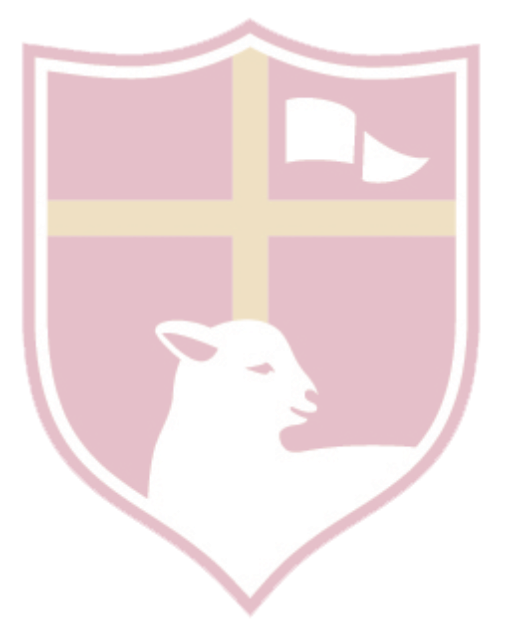
Maths
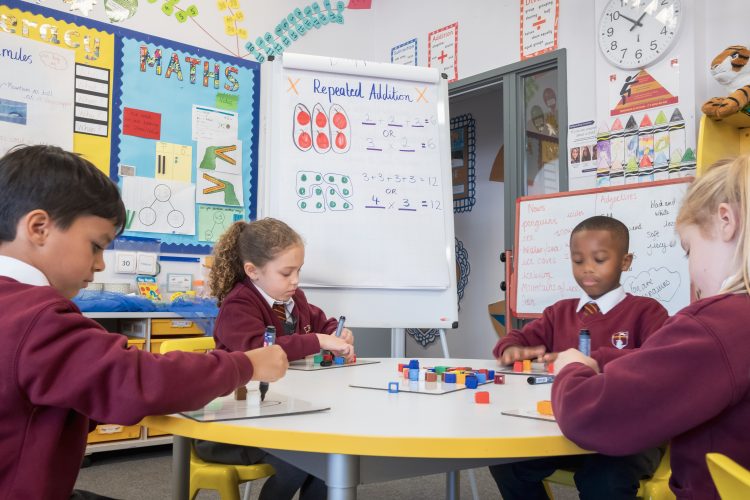
Luke 14:28-30
Mastering Maths through creativity and imagination.
Organisation of Maths
At Eltham Church of England Primary School, maths is taught at least four times a week from Reception to Year 6, with lessons lasting between 45 and 60 minutes. The curriculum is designed to be cumulative and coherent, with each step building on prior knowledge and preparing children for what comes next. We follow the White Rose Maths scheme, which provides a carefully sequenced ‘small steps’ approach. This mastery-based approach is built around carefully sequenced small steps that help children develop a deep, long-lasting understanding of mathematical concepts.
Each unit of learning is broken down into manageable steps that include:
- Fluency – developing quick and accurate recall of facts
- Reasoning – explaining and justifying mathematical thinking
- Problem-solving – applying knowledge in a variety of contexts
We use a CPA approach (Concrete–Pictorial–Abstract) to support all learners:
- Concrete: Children use physical resources like counters, cubes, and dienes to explore concepts.
- Pictorial: Visual representations such as bar models and number lines help bridge understanding.
- Abstract: Children move on to formal written methods and mental strategies.
This consistent structure helps children gain confidence, make connections, and enjoy success in maths.
Maths Lessons
At Eltham, our maths lessons are designed to be engaging, inclusive and carefully sequenced to build deep understanding over time. Across all year groups, children are encouraged to talk about their thinking, work collaboratively, and apply their learning in real-life contexts.
Each lesson includes opportunities to:
- Revisit prior learning to strengthen memory and confidence
- Explore new concepts using a CPA (Concrete–Pictorial–Abstract) approach
- Practise fluency through varied and intelligent practice
- Apply learning in reasoning and problem-solving tasks
Early Years Foundation Stage (EYFS)
In Reception, children explore maths through stories, songs, games, and hands-on activities. The curriculum is built around the EYFS Statutory Framework and focusses on developing early number sense, pattern, shape, and spatial reasoning.
Children learn through:
- Daily adult-led sessions and continuous provision
- Practical activities using real life objects
- Exploring mathematical ideas through play and talk
Topics include:
- Matching, sorting, and comparing
- Numbers to 10 and beyond
- Shape, space, and measure
- Patterns and sequencing

Key Stage 1 (Years 1 & 2)
In KS1, children build fluency with number facts and develop confidence in using numbers up to 100. Lessons are practical and visual, using manipulatives such as tens frames, number lines, and counters to support understanding.
Key areas include:
- Place value and number bonds
- Addition and subtraction
- Multiplication and division (Year 2)
- Fractions, shape, and measurement
- Time and money
Children are encouraged to explain their thinking and solve problems in real-life contexts.
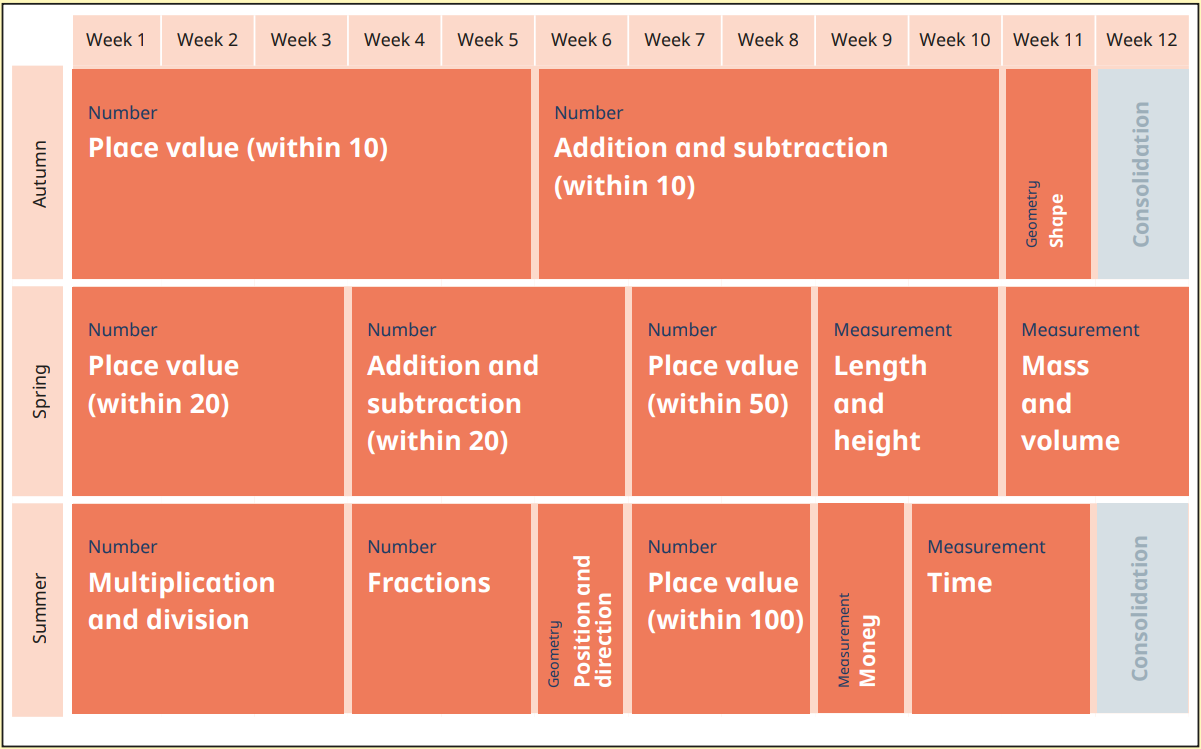

Lower Key Stage 2 (Years 3 & 4)
In LKS2, children deepen their understanding of number and begin to work with larger numbers and more complex calculations. They are introduced to formal written methods and are encouraged to reason and explain their thinking.
Focus areas include:
- Place value up to 10,000 (Year 4)
- Formal methods for all four operations
- Fractions and decimals
- Measurement (including perimeter and area)
- Times tables up to 12 × 12
Children also begin to explore statistics and geometry in greater depth.
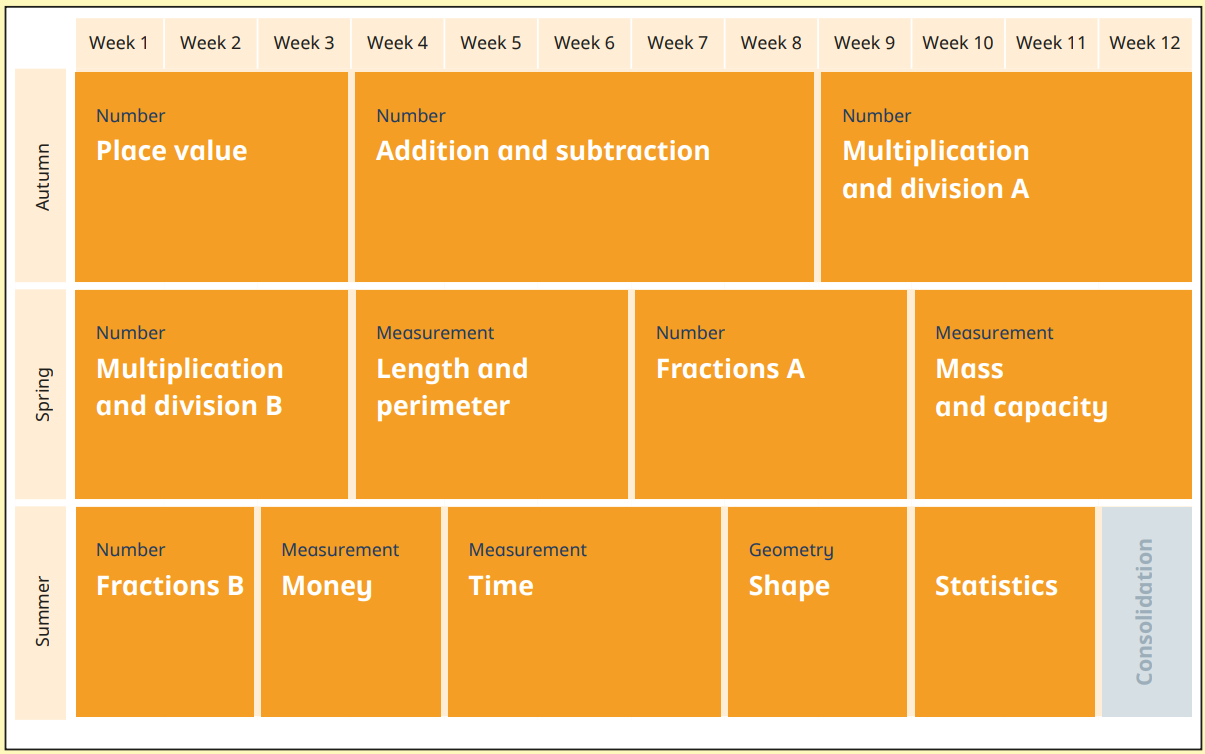
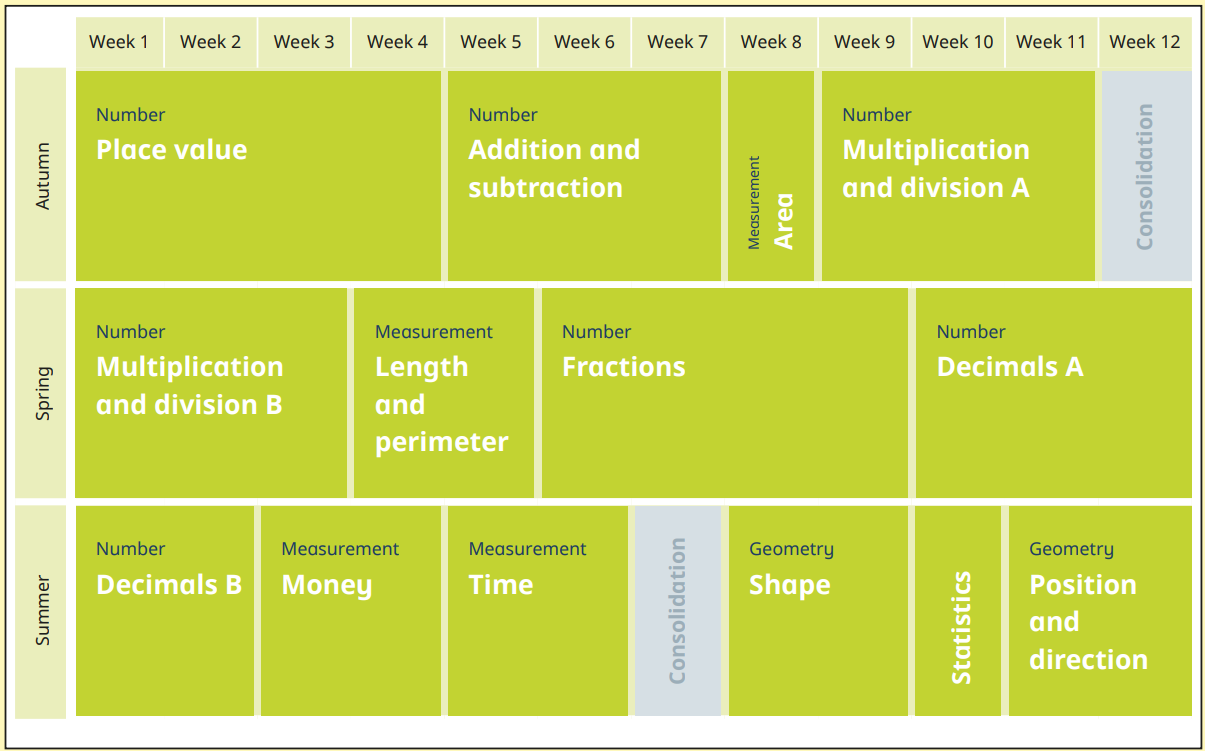
Upper Key Stage 2 (Years 5 & 6)
In UKS2, children consolidate their understanding and prepare for secondary school. They apply their knowledge to multistep problems and develop fluency with more abstract concepts.
Key topics include:
- Place value up to 1,000,000 and beyond
- Fractions, decimals, and percentages
- Ratio, proportion, and algebra (Year 6)
- Geometry, including angles and coordinates
- Converting units and interpreting data
Children are encouraged to work independently, justify their reasoning, and reflect on their learning.
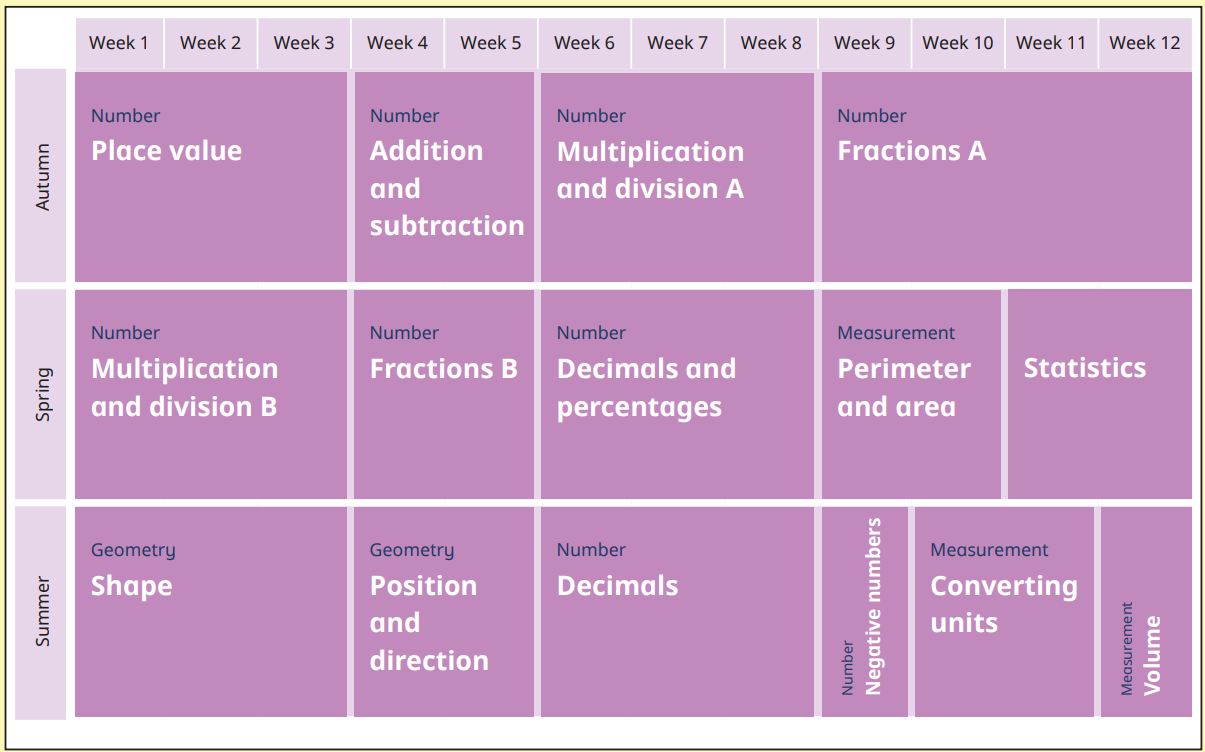
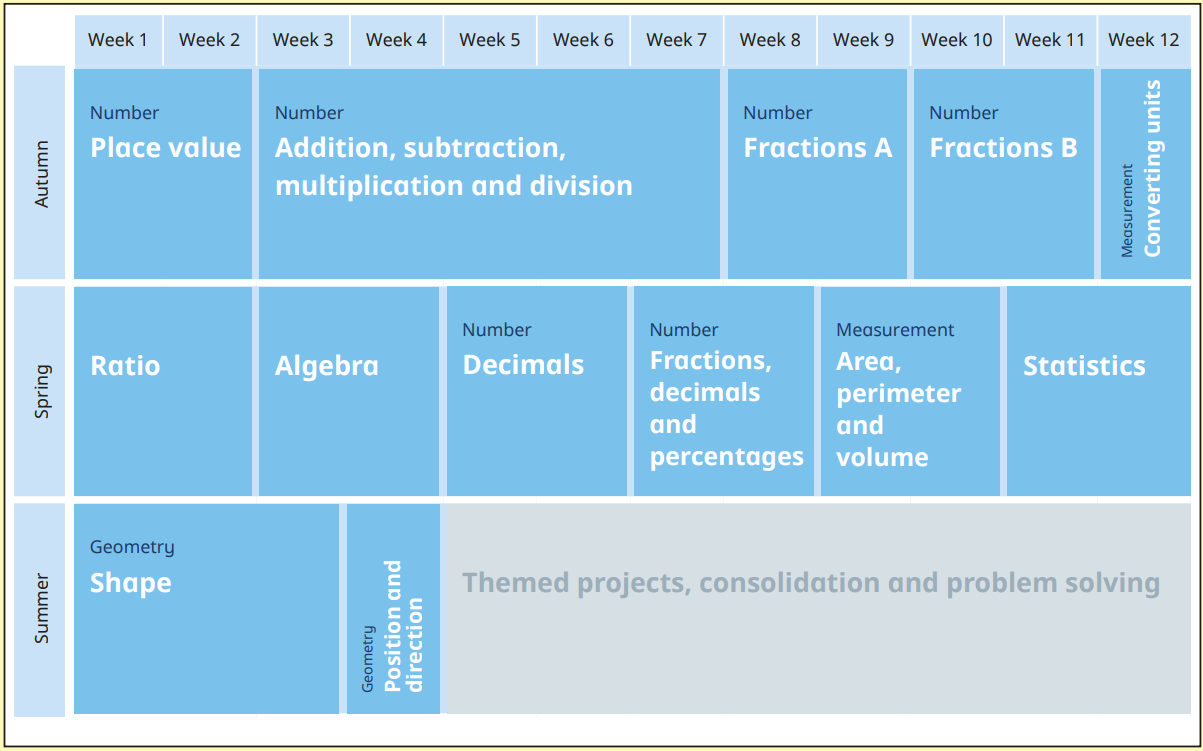
Times Tables Rock Stars
 To support fluency in multiplication, we use Times Tables Rock Stars—a fun and engaging online platform that helps children master their times tables through daily practice.
To support fluency in multiplication, we use Times Tables Rock Stars—a fun and engaging online platform that helps children master their times tables through daily practice.
Click here to go to TTRS website.
The programme is carefully sequenced and adapts to each child’s progress. Its smart algorithm adjusts the level of challenge based on accuracy and speed, offering a personalised learning experience that keeps children motivated. Every child from Year 2 to Year 6 has their own login and is encouraged to practise regularly both in school and at home.
Children enjoy competing in friendly challenges, earning coins, and tracking their progress—all while building essential number fluency in a way that feels like play.
Enrichment
At Eltham, we believe that maths is more than just numbers on a page. it’s a way of thinking, exploring, and understanding the world.
Maths Competition
This year, a group of pupils had the exciting opportunity to take part in the 2025 Maths Challenge at the Guildhall, City of London. During the event, our young mathematicians worked in pairs to solve a series of timed mathematical tasks, using tools such as calculators, tangrams, playing cards, and dominoes. Each station presented a new challenge, encouraging collaboration, strategic thinking, and creative problem-solving. The experience brought maths to life in a fun and engaging way, helping pupils to build confidence and enjoy applying their skills in a real-world setting.


